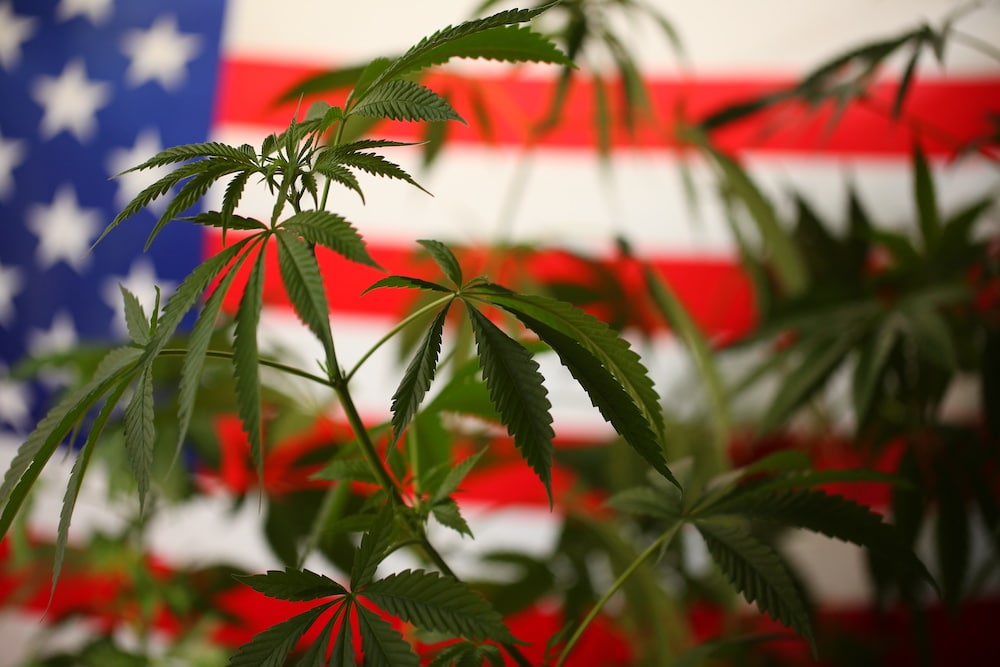
Introduction to Federal Policy:
In the ever-evolving landscape of cannabis legislation, two terms often come up in discussions: rescheduling and descheduling. These terms may sound complex, but they’re vital to comprehend if you’re interested in the changing legal status of cannabis.
Current Status of Federal Legalization
Cannabis is currently a Schedule I drug which means that, according to the United States federal government, it is considered to have a high potential for abuse and has no accepted medical use. As a result, it is categorized as one of the most tightly controlled and illegal substances under federal law where it currently sits along with heroin, LSD, MDMA, and Psilocybin.
However, it is clear cannabis many accepted medical uses which is why even the Department of Health and Human Services (a federal agency) has recommended that cannabis be removed from the Schedule I list. Now it is up to the DEA to decide if it will take the HHS’s recommendations which would immediately eliminate the 280E tax code that does not allow cannabis operators to deduct business expenses as normal businesses do in the U.S.
Let’s break down the differences between rescheduling and descheduling cannabis in simple terms.
Rescheduling Cannabis: A Closer Look
What Is Rescheduling?
Rescheduling cannabis involves shifting its position within a government-regulated list of controlled substances, known as the Drug Schedule. The Drug Schedule categorizes drugs based on their perceived level of danger and medical potential. Cannabis currently resides in Schedule I in the United States, signifying it’s considered highly dangerous and illegal.
Why Reschedule?
Advocates for rescheduling cannabis argue that it should be moved to a lower schedule, such as Schedule II or III. This shift would signal that the government acknowledges it as less dangerous than previously believed. A lower schedule might open the door for increased research opportunities and even limited medical use.
Descheduling Cannabis: Removing It from the List
What Is Descheduling?
Descheduling cannabis goes a step further than rescheduling. When a substance is descheduled, it essentially means that the government no longer classifies it as a dangerous or illegal drug. Instead, it’s regulated more like everyday items such as alcohol or tobacco, which are subject to rules but not listed as controlled substances.
Why Deschedule?
Descheduling is the goal for many of the leading advocacy organizations in SMART’s community like, Marijuana Justice based in Virginia, who maintain that just rescheduling cannabis will not achieve the Biden Administration’s campaign promises or social justice goals.
Marijuana Justice’s Key 3 Reasons For Descheduling Cannabis
- No Cannabis Prison Reform: Rescheduling cannabis does not release anyone currently incarcerated for a cannabis convictions or expunge any cannabis-related records. Nor would it address the immigration related consequences which are a leading cause of deportation of immigrants to the US or restore eligibility for public benefits such as housing and nutritional assistance for people with marijuana convictions.
- Disrupts Existing State Programs: Rescheduling does not federally legalize the existing medical and adult-use regulatory programs which currently exist in 38 states or state-legal cannabis industry businesses which currently employ over 400,000 workers.
- Abandons Medical Patients: Rescheduling does not allow legal access to state-authorized medical marijuana
programs. It could, however, lead to marijuana products being prohibited as unapproved drugs by the Food and Drug Administration (FDA).
Key Takeaways
- Rescheduling moves cannabis to a lower schedule, indicating it’s less dangerous but still regulated.
- Descheduling completely removes cannabis from the list of controlled substances, treating it more like common items.
Conclusion:
In summary, rescheduling and descheduling cannabis are critical aspects of the ongoing debate surrounding its legal status. Understanding these terms is essential for anyone interested in the evolving landscape of cannabis legislation. Keep an eye on these developments as they can significantly impact how cannabis is used and regulated in the future.




